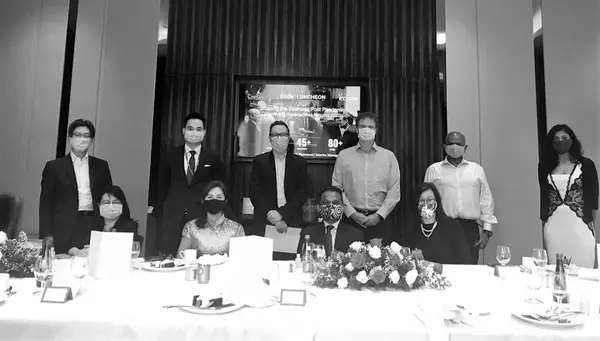One fact that was evident was that the pandemic had no equivalent in recent history, although delegates did find parallels in the Spanish Flu and SARS epidemics. This was indeed a black swan event, as no reference books have readily provided guidance on best business strategies and leadership approaches that would work.
The luncheon opened up discussions drawn from personal experiences on navigating the challenges posed by the recent lockdown and thereafter.
Authentic & Courageous Leadership
Since the pandemic has hit every business, CEOs of every stripe immediately realised that it was important to build an environment of trust and relationship with employees. The lockdown, which accelerated the adoption of remote-working, also challenged traditional leadership models.
On the minds of the CEOs were the anxiety and uncertainty of direction and job security that many individuals were experiencing. The roles of the CEOs changed as they mobilised teams and resources and facilitated new competencies in a virtual work environment.
Open, transparent and frequent communication has not only helped to calm anxiety among employees but also motivated unparalleled participation by all pockets of employees to sail through the challenges together with the leadership team.
Mental Health & Wellness
The effects of the lockdown and transition to work from home have resulted in new triggers such as stress and depression. More CEOs have placed a focus on mental health and employee wellness than ever before. Fortunately, most multinational companies had policies and employee assistance practices in place to help distressed employees to get back on track.
CEOs also agreed that the pandemic hit women the hardest, as they carried the heavier load of household responsibilities and keeping the family together amid the burden of the lockdown. This has demanded a lot more empathy and support from managers and colleagues.
ESG, Sustainability & Impact Investing
More boards and CEOs expressed intent to increase activities centring on ESG, sustainability and impact investing. The future is all about good business. In the word of Klaus Schwab, founder and executive chairman of the World Economic Forum, the pandemic has called for a great reset of capitalism, one that will result in how companies will look at the impact on all aspects of societies and economies, including the social contract, education and working conditions. The letter sent by Larry Fink, CEO of BlackRock, to CEOs of portfolio companies epitomises the appetite of global asset managers for impact investing to promote long-term value, to increase activities centring on ESG, sustainability and impact investing.


